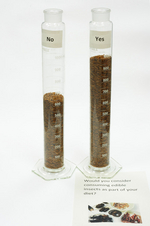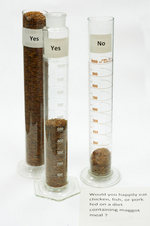Life Cycle Sustainability Assessment
The underlying concept of using insects as a novel protein source in feedstuffs has great utility potential. But the environmental impact and socio-economic performance of production processes and products of that origin remain widely unexplored. Aiming for sustainable production and consumption patterns, consideration must be given to the environmental, economic and social implications.
To design sustainable insect production systems that are suitable for adoption by small and large-scale operations in different regions of the world, WP4 will perform comparative Life Cycle Assessments on a wide range of production systems in different biophysical and socio-economic environments. The concept of Life Cycle Assessment is based on an evaluation of impacts of products and services over their complete life cycle, i.e. from extraction of raw materials, transport, processing and assembly to distribution, end use, and waste disposal. To address all sustainability dimensions, we will employ different life cycle methods including environmental Life Cycle Assessment (env. LCA), Life Cycle Costing (LCC) and Social Life Cycle Assessment (S-LCA). Apart from making informed choices on products, Life Cycle Thinking methodologies are particularly suitable to detect efficiency deficits and yet untapped improvement potentials and thus are highly relevant for product development and consultations towards policy change.
In order to guarantee comparability with other protein supplying feedstuffs, the evaluation will be made on the functional utility of 1 kg of crude protein for relevant livestock. The nutritional performance and ileal digestibility of 1kg of insect borne crude protein will be evaluated in respective feeding trials.
These comprehensive and informed LCA analyses will yield information that supports decision makers on customized measures that ease implementation of insect proteins for feed while countering yet unforeseen negative externalities.




